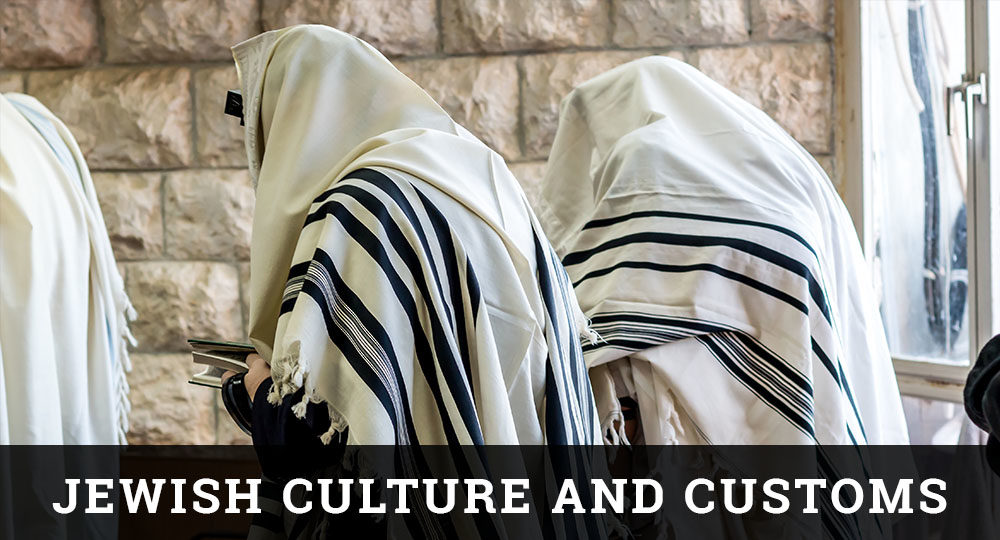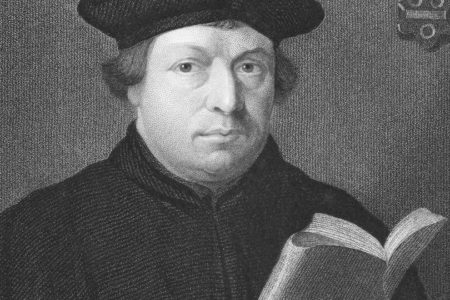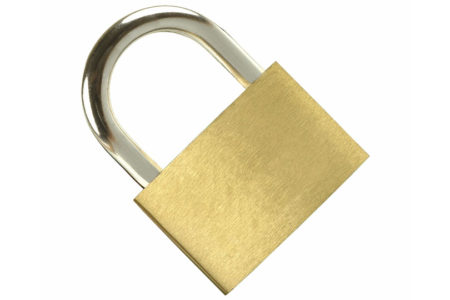The Man Who Brought Hebrew Back to the Land
For its first issue of the year 2000, The Jerusalem Report, a prominent international Jewish magazine, published the results of a poll in which it asked its readers to choose the one hundred greatest Jews of the past millennium. Four of the top ten were David Ben-Gurion, Theodor Herzl, Yitzhak Rabin, and Golda Meir. No doubt these well-known individuals placed high because of the indisputably monumental contributions they made to the establishment and growth of the modern State of Israel.
At the same time, however, it was rather disappointing that the man who brought Hebrew back to the land only came in thirty eighth. His name was Eliezer BenYehuda, a man with every bit as much Zionistic fervor as those in the top four. And his accomplishment may well have eclipsed all others save that of Herzl himself, the father of Zionism (the movement to establish a national homeland for the Jewish people in the land of Israel.)
Ben-Yehuda’s zeal as a Zionist came many years before Herzl’s. I remember a story I once heard when I was a young boy attending Hebrew school. It beautifully sums up the magnitude of BenYehuda’s achievement. Around 1897, when the First Zionist Congress met in Basel, Switzerland, a legion of skeptics found it incredulous that the Jewish people could ever be reestablished in their land as a viable country in the world. Many poked fun at Herzl and his supporters. One such critic asserted that there was as much chance of creating a modern Jewish state as there was that the people in that state would all speak Hebrew—the ancient tongue of Israel.
His cynicism was understandable. At that time, Hebrew was virtually a dead language. Generally, only biblical scholars used it, and even they rarely conversed in it because thousands of words used every day in other languages simply did not exist in Hebrew. There was, for example, no way to say bicycle or doll or ice cream or bulldozer.
But Ben-Yehuda was not to be deterred. His goal was Yisrael b’artzo uvilshono—Israel in its own land, speaking its own language.
Eliezer Yitzhak Perelman, as he was named at his birth in 1858, was born in Luzhky, Lithuania. Reared in a Hasidic household, he was able to attend yeshivah (Jewish day school) despite the fact his father had died when he was only five years old. Living at a time when haskala—enlightenment—was sweeping Europe, Eliezer became very interested in secular literature, a heresy for Hasidic Jews. As a result, he was expelled from his uncle’s home, where he had been living, and had to find lodging elsewhere.
He moved to Vilna and lived in the home of a Hasidic scholar who also had been influenced by the enlightenment.
While there, he learned to read and write several languages and became more and more influenced by the European awakening. In an unfinished autobiography, Ben-Yehuda told of that time and its profound effect on him. The following excerpt came from an article written by BenYehuda’s grandson and cited on the Internet by Lev Software of Ft. Lauderdale, Florida. In it, Ben-Yehuda detailed an experience that changed the direction of his life forever.
In those days it was as if the heavens had suddenly opened, and a clear, incandescent light flashed before my eyes and a mighty inner voice sounded in my ears ‘the resurrection of Israel on its ancestral soil.’ Because of that voice, which has not ceased from that moment on to ring in my ears day and night, all my thoughts and plans which I had for my future life were shaken up. As night visions pale in the face of the light of day, so were my dreams of dedicating my life to the cause of freedom in the Russian nation replaced with a single ideal, manifest in the Hebrew words ‘Yisrael b’artzo’–Israel in its own land! I was challenged by many, and one argument said that the Jews are not now and could not be in the future a nation–because they did not possess a common tongue…the more I thought of the national revival the more I realized what a tongue can do to unite a people. I realized that just as the Jews could not become a living nation except by returning to their ancient homeland–so also they could not become a living nation except by returning to the language of their ancestors, speaking it not only in prayer and study but also in all matters of life, young and old alike, at all hours of the day and night–just like every other nation, each with its tongue. That was the decisive moment in my life, when I saw that the two things without which the Jews could not become a nation are the land and the language!1
In 1878 Ben-Yehuda made the decision to move from Paris, where he was living, and settle in Eretz Yisrael—the land of Israel. At the time, the land was a virtual Babel of languages. Under Turkish rule, the various tongues included Arabic, Russian, Yiddish, English, and some Hebrew. Ben-Yehuda desired to start a community of Hebrew speakers who actually lived in the land. In religious circles, however, Hebrew was considered too sacred to speak on a daily basis so there was objection to the idea of vulgarizing its sanctity.
Ben-Yehudah’s seemingly farfetched plans seemed even more unlikely when he contracted tuberculosis in the winter of 1878. While in the hospital in Paris, he met A. M. Lunz, a man who spoke impeccable Sephardi Hebrew. Sephardi Hebrew was used in the transliteration of biblical names in ancient and modern translations of the Bible.
By 1881, not fully recovered from the effects of his illness but with his vision for a “people wedded to a land, speaking its own language,” he began his journey to Jerusalem.2 Having broken off a relationship with his childhood sweetheart because of his illness, Eliezer was shocked to see her waiting for him in Vienna. She was prepared to make the rest of the journey to the Holy Land with him as his wife. When he reminded her of the difficulties that lay ahead, Deborah responded as Ruth had responded to her mother-in-law, Naomi, hundreds of years before: “wherever you go, I will go; and where you lodge I will lodge.”3 They were married in Cairo.
When they landed in Jaffa in October 1881, Eliezar informed his wife that they would no longer speak Russian. From that moment forward, Hebrew would be their only language. His new bride replied in Russian, “I do not speak Hebrew.” His answer? “Then you will be silent in Hebrew.”4 They became the first Hebrew-speaking home established in Jerusalem and their son, born in 1882, the first modern Hebrew-speaking child.
Ben-Yehuda established a society whose goal was to revive the language in the land. He wrote for a political magazine and taught in a Jerusalem school where he was permitted to instruct in Hebrew—the first school in the land with such instruction. He published a geography book called Eretz Yisrael and translated many texts for use in the classroom on subjects such as math and literature. He wrote for Hakhavatzelet, a Hebrew literary periodical, and launched Hatzvi, a weekly newspaper published in Hebrew that reported the news of the land. Soon the need grew to create words that did not already exist in Hebrew. So Ben-Yehuda published lists of words he fabricated. In fact, when he began to publish a dictionary, the word dictionary did not exist.
In 1891 his faithful wife, Deborah, died of tuberculosis, leaving him with two small children. According to the account written by Eliezer’s grandson, Deborah wrote a letter to her younger sister shortly before her death. “If you want to be a queen,” she said, “then hurry to Jerusalem and marry my prince, my darling Eliezer.”5 And her sister did. She changed her name to Hemda (“darling” in Hebrew) and made the journey to Jerusalem. Six months later they were married. She helped him immensely in his work and supported him in all he did.
Ben-Yehuda founded and presided over Va’ad HaLashon, the forerunner of the Hebrew Language Academy, while working tirelessly on his dictionary.6 In 1910 he published the first six volumes. He died in 1922 without completing his work. His wife and son Ehud (whose son, in turn, wrote the material used by Lev Software) continued publishing his manuscript—a task that was not finished until 1959, long after their deaths. In all, seventeen volumes were completed, listing all the words used in Hebrew literature from the time of Abraham to modern times.
To understand this immense accomplishment, one only has to think of biblical prophecy. One day the Messiah of Israel will return to His people, the Jewish people. When He touches down on the Mount of Olives, walks down and up the slopes of the Valley of Kidron and through the gates of the old city walls, He will seat Himself on the throne of His father David. When that happens, the language He will hear, and possibly even speak, will once again be Hebrew—the language of His kinsmen according to the flesh.
The story of Israel is a story of resurrection. There is but one nation in the world whose people were forced to leave their homeland, to survive more than nineteen hundred years in other countries, and to finally come home. As incredible as that miracle is—and it is a miracle—it is no less a miracle that the national language today is, once again, Hebrew.
Eliezer Ben-Yehuda may have been thirty-eighth on one list; but he is number one on mine.








I agree! He is # 1 on my list also! My friend was friends with Eliezer’s granddaughter in Israel & it was a great story of lives dedicated to bringing the Hebrew language back. I’m not Jewish, but I am learning the language and desire to gain a full understanding of what the original text in Hebrew was trying to convey in my bible. Thanks for a great article.